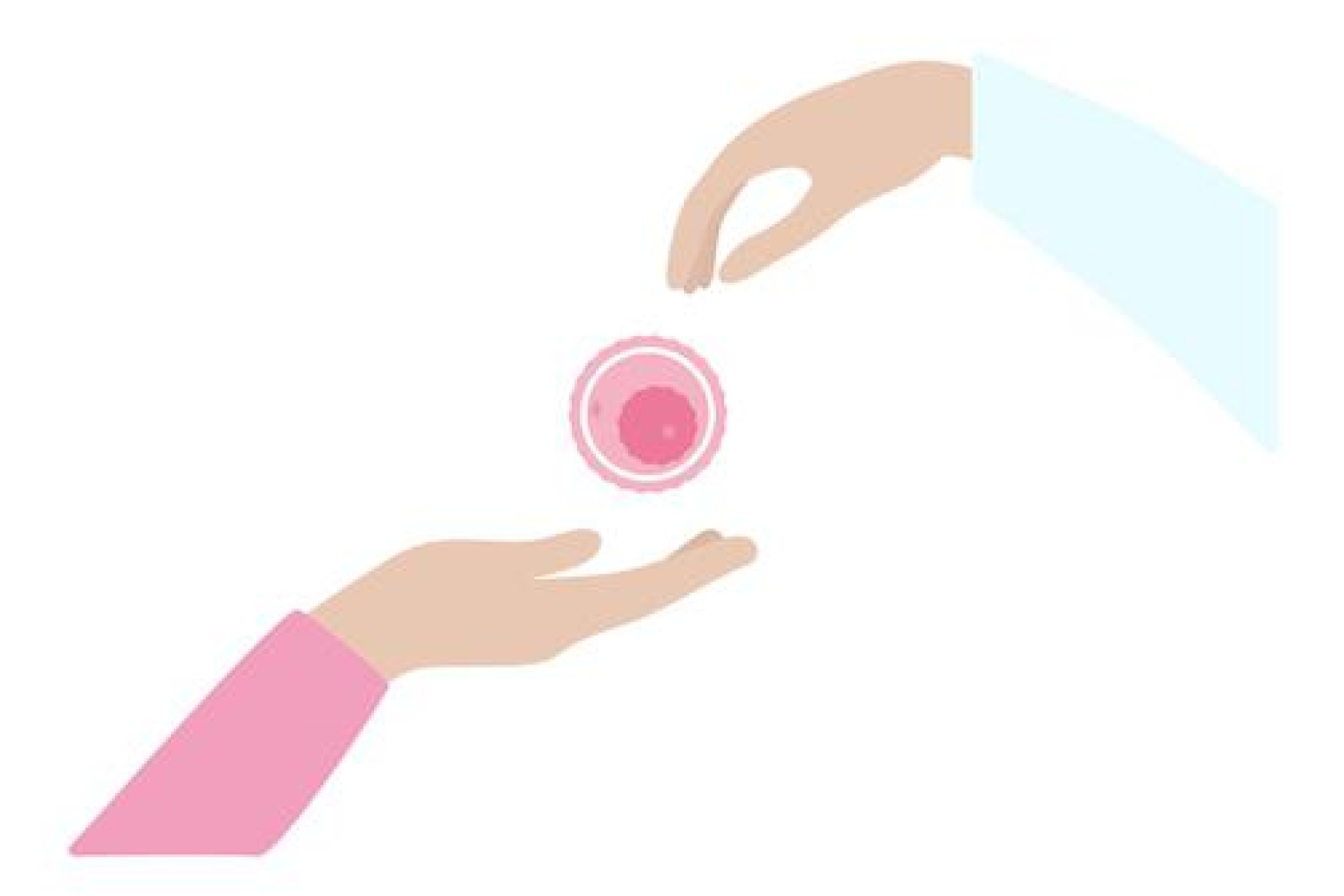
Oocyte donation should be considered when an ovarian reserve is severely impaired, which may be due to age. It can also be discussed on the basis of medical history or after a succession of failed MAP attempts.
However, this alternative merits careful consideration, as it involves using a third party's oocyte, which will be fertilised with the spouse's sperm. The embryo formed in this way will be transferred to the patient's uterus and will develop in around 40 to 50% of transfers, followed by a pregnancy that will be genetically from the spouse and another woman.
There is no obligation one way (acceptance) or the other (refusal): it's all about what's best for the couple, depending on their personal and family history, and the attitude they wish to adopt towards their child, whether or not they wish to keep this information secret, and so on.
The uterus is not affected by age, so there's plenty of time for reflection. A consultation with a specialized psychologist can help explore all aspects of this possibility. In the course of my career, I've seen couples who initially wanted to donate their oocytes change their minds after reflection, and of course the opposite.
The experience of egg donation shows that pregnancy, due to the exchanges that take place between the pregnant woman and the foetus, childbirth, and the project of love are stronger than genetics in the strict sense.
Numerous scientific studies have also revealed the importance of epigenetics, i.e. the environment (emotional and physical) on the expression of the future child's genes.
There are two objectives when choosing a donor:
To avoid favouring a risk of disease by taking into account the personal and family medical history of the donor and her partner.
To promote physical homogeneity by taking into account skin colour and physical appearance (height, weight).
In some countries, such as Spain and the Czech Republic, egg donation is anonymous, whereas in other countries, such as the UK and Belgium, egg donation is not necessarily anonymous and the donor may even wish to reveal his or her identity.
Since the last revision of the Bioethics Law in 2021 in France, anonymity has been lifted with access to origins. The law provides for anonymity to be maintained for the recipient couple and for society as a whole, but for the child to have access to his or her origins when he or she reaches the age of majority.
For the time being, however, the recipient must be under 43 years of age to be eligible for treatment. The list of establishments authorised to carry out egg donation is available on the Agence de Biomédecine website. There is a waiting period of around a year, as there is a shortage of donors in France, mainly due to a lack of information.
Because of the long waiting times, many women over the age of 38 benefit from an oocyte donation abroad.
Be careful, however, not to have a large number of embryos re-implanted: multiple pregnancies, particularly in older women, should be avoided.
Written by:
Pr René Frydman,
University Consultant
Foch Hospital, Suresnes